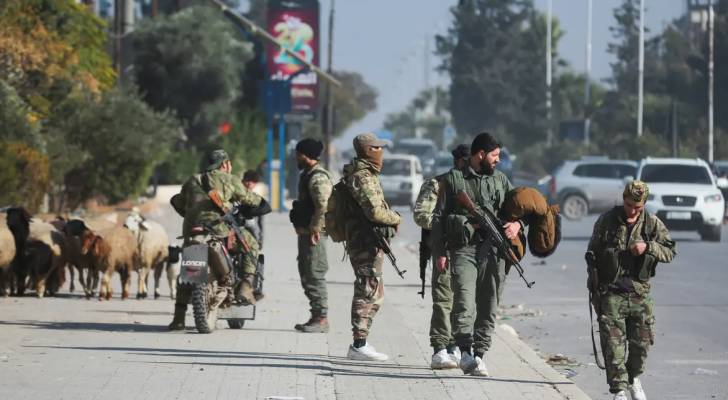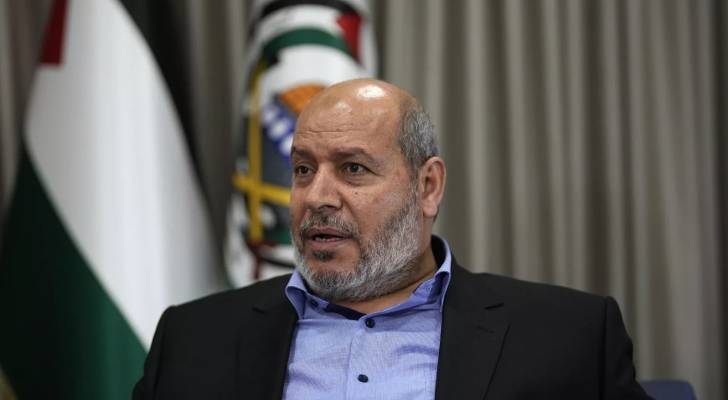Cabinet endorses draft law for copper, mineral investment in Abu Khashaba
AFP
AMMAN — The Cabinet, during a session chaired by Prime Minister Jafar Hassan on Sunday, endorsed a draft law approving the executive agreement between the Ministry of Energy and Mineral Resources and Wadi Araba Minerals Company to evaluate, develop and exploit copper and other minerals in the Abu Khashaba area, to be referred to the Lower House for constitutional procedures.
The agreement aligns with the Economic Modernisation Vision, which designates mining as a high-value-added sector. It is also expected to stimulate local manufacturing, support sustainable investment in national resources, and generate jobs in Wadi Araba, contributing to development efforts in the area, according to a Prime Ministry statement.
The Wadi Araba Minerals Company Company has completed preliminary studies confirming the economic feasibility of copper investment in the region, estimating that the area contains between 20 and 30 million tonnes of copper ore at commercially viable grades.
The Ministry of Energy and Mineral Resources has recently signed an executive agreement for gold ore exploitation with the Wadi Araba Minerals Company, covering a 66-square-kilometre area in Wadi Araba, including Abu Khushaiba, Abu Barqa mountains, and Al Buraq, of which 48 sq km had previously been allocated to the company for copper exploration.
The Cabinet also approved a new bylaw regulating ride-hailing applications, lifting previous restrictions on licensing new companies and unifying bank guarantee requirements at JD100,000 to ensure seriousness and financial solvency. Under the new law, vehicles must not exceed seven years of operational age, be equipped with electronic tracking systems, and display special stickers.
Drivers must be under 65, hold at least three years of driving experience, pass a training course to work on the application system from the company’s training centres, and meet health and conduct requirements. Cars must either be owned by the driver or a close relative, with exceptions for licensed taxis.
Ride-hailing companies will be required to equip vehicles with self-monitoring systems to ensure quality and safety, set clear fare structures for fees and commissions approved by the commission, and share data with the Land Transport Regulatory Commission. Firms must also allocate several cars to serve persons with disabilities, offer promotional packages, provide a system for receiving complaints and comments, organise and process records for them and establish training centres for drivers, the statement read.
To obtain a license under this bylaw, vehicles must be properly registered and carry insurance that covers smart application services, exceeding the minimum mandatory coverage requirements. Companies are also required to comply with the provisions of the Personal Data Protection and Cybersecurity Laws, ensuring the security, safety, confidentiality, and availability of data permanently. Companies have six months to comply with the new bylaws, the statement said.
The amended bylaw also introduced a new article exempting taxi offices seeking licenses to operate ride-hailing services from the capital requirement of registering a company with JD100,000 in paid-up capital, as well as from the performance bond stipulated in Article 4 of the previous bylaw, which ranged from JD50,000 to JD100,000.
The Cabinet also approved a new price list for direct connection services through open application programming interfaces (APIs), lowering costs to facilitate startups’ access to official data and enhance their ability to develop new applications.
In the public sector, the Council of Ministers approved amended bylaws for recruitment laws in government institutions to strengthen fairness and competitiveness, and to align hiring with staffing needs. The new rules also expand opportunities across governorates.
The Cabinet also endorsed guidelines for hiring under humanitarian cases, allocating 10 per cent of government vacancies to such categories, including 4 per cent for persons with disabilities, in accordance with the Rights of Persons with Disabilities Law. The bylaw allows persons with disabilities to compete for the percentage allocated exclusively to them, in addition to the possibility of competing for other jobs outside of humanitarian cases.
The Cabinet also approved the 2025 guidelines for recruiting and appointing top university graduates, scholarship students and the children of martyrs, military retirees, and injured servicemen. Under the new bylaw, 5 per cent of vacancies in government institutions would be allocated to top graduates from Jordanian universities holding bachelor’s degrees, in accordance with clear criteria that ensure fair competition among them.
As a gesture of recognition for the sacrifices of Jordan’s martyrs, the guidelines also allow for the appointment of their children in public sector institutions. One hundred government jobs will be reserved annually for the children of military retirees, in addition to their right to compete for other available positions, while 30 positions will be allocated to the children and spouses of injured servicemen, who will also remain eligible to apply for other vacancies.
Latest News
-
 Syrian defense minister announces "comprehensive ceasefire" with Kurds
Syrian defense minister announces "comprehensive ceasefire" with Kurds
-
 King holds phone call with US president
King holds phone call with US president
-
 Crown Prince meets winners of Al Hussein Award for voluntary service
Crown Prince meets winners of Al Hussein Award for voluntary service
-
 Clashes erupt in Aleppo between Syrian army and SDF, dozens displaced
Clashes erupt in Aleppo between Syrian army and SDF, dozens displaced
-
 First round of Gaza talks concludes in ‘positive atmosphere': Egyptian media reports
First round of Gaza talks concludes in ‘positive atmosphere': Egyptian media reports